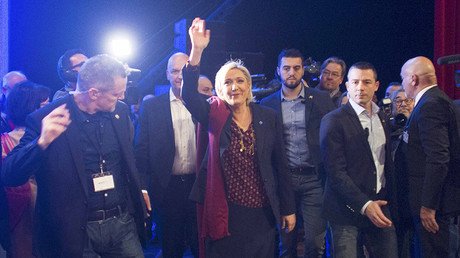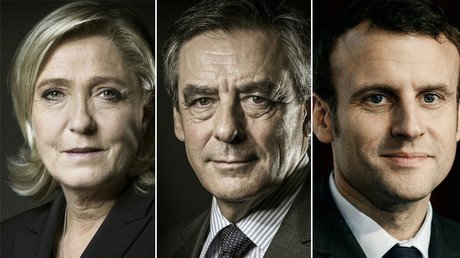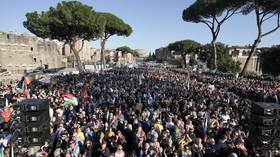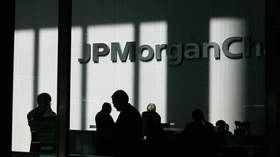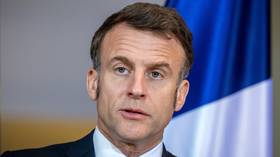‘Colonization was a crime against humanity’: French presidential favorite Macron sparks firestorm
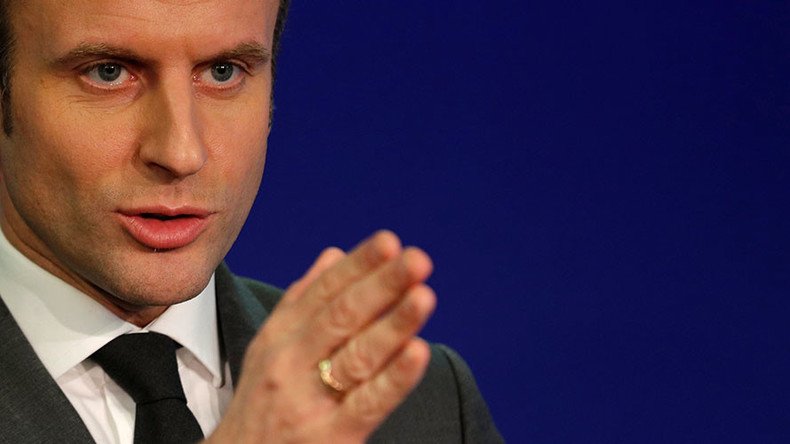
Emmanuel Macron, the centrist French politician who is surging in the polls two months ahead of the presidential election, has been forced to defend himself after criticizing his country’s colonial past.
Macron, 39, was asked to clarify previous comments on colonization during an interview with Algerian television, broadcast on Tuesday night – a sensitive issue in a country that fought a bloody war to earn its independence from France.
“Colonization is a crime. It’s a crime against humanity. It’s truly barbarous and it’s part of a past that we need to confront by apologizing to those against whom we committed these acts,” Macron said.
“At the same time, we must not sweep this past under the rug…There’s a fitting phrase that is said about Algeria: ‘France established human rights in Algeria. It simply forgot to abide by them,’” the politician added.
Nationalist Marine Le Pen, who is polling highest of all presidential candidates, but predicted to lose to Macron if they face off in the second round, said his remarks were tantamount to treason.
"Is there anything more serious when you want to be President of the Republic than to go abroad to accuse the country you want to lead a crime against humanity?" she asked rhetorically during a Q & A with her supporters, posted on Facebook, accusing him of having “contempt for France.”
Earlier, Florian Philippot, vice-president of her National Front party tweeted, “Mr. Macron, are roads, hospitals, French language and French culture crimes against humanity? Stop this constant repentance!”
Republican Francois Fillon, the preferred candidate of the center-right who is neck and neck with Macron in the race to secure a place in the second round, also accused Macron of flip-flopping on his earlier stance.
Fillon - who is struggling with legal issues - said during a rally in Compiegne, a town outside Paris, that “this hatred of our history, this constant repentance is undignified for a presidential candidate. It wasn’t so long ago that Mr. Macron recognised some of the positive aspects of colonization. This means that Emmanuel Macron has no spine. He’s simply saying what people want to hear.”
In an interview in October – which was referred to by the Algerian journalist this week - Macron gave a different spin, saying that France’s 130-year control over the territory resulted in “the emergence of a state, of wealth, of a middle class” and that there were “civilized elements and barbarous elements” of French rule.
His latest remarks were more nuanced than most press quotes, however, as Macron went on to warn that a “culture of guilt” around colonization and the 1954-62 war of independence, which resulted in in at least 300,000 deaths on both sides, was “counter-productive.” Macron later went on to Twitter, to once again restate his position, before releasing a video on his website to explain himself.
But whatever his justifications, Macron’s neat-sounding but malleable quotes have fed into his image as a slick opportunist, who has emerged without hinterland or convictions.
Ian Brossat, a prominent Communist Paris politician, said Macron has changed his words so many times that “you are bound to eventually agree with something he says.”
Educated at the elite ENA civil service school, Macron worked as a finance ministry official, a banker at Rothschild, and served as a Minister of the Economy in Francois Hollande’s Socialist government. He quit the party, before becoming an independent and started his own movement, En Marche, less than a year ago.
His varied biography has made it difficult to pin down his views, though he appears to be socially progressive, and economically liberal, as well as avowedly pro-EU. Like prominent centrist liberals before him, such as Tony Blair and Barack Obama, his campaign caught fire because of his relative youth, and the promise of change – Macron says he will “unblock France.”
🇫🇷 FRANCE | @opinionway poll
— Vocal Europe (@thevocaleurope) 16 February 2017
1R#LePen 26 -1#Macron 21#Fillon 20#Hamon 16 +1
2R
Macron 62
Le Pen 38
Fillon 57 -1
Le Pen 43 +1 pic.twitter.com/8o8gIQMWQ7
An Opinionway poll published on Thursday show that Macron would come second to Le Pen (26 percent) with 21 percent of the votes, but ahead of Fillon on 20. In the run-off on May 7 he would defeat Le Pen by 62 to 38 percent, the pollsters said.
